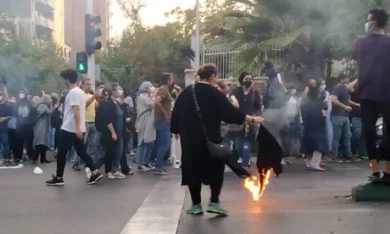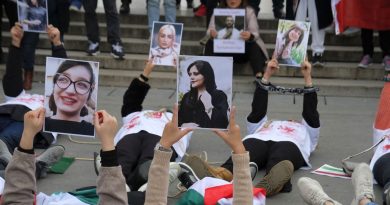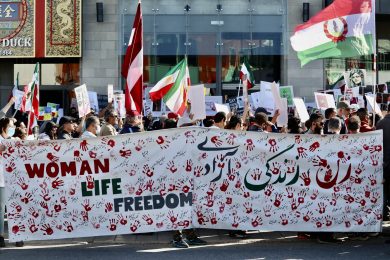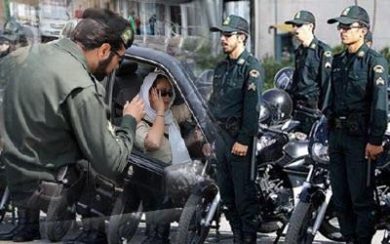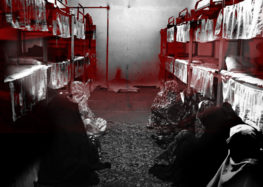For decades, the Islamic Revolutionary Guard Corps (IRGC) has committed crimes with impunity — crushing protests, torturing prisoners, funding terrorism, and orchestrating assassinations abroad. Despite international condemnation, little legal accountability has followed. But that may be changing.
A growing movement of lawyers, survivors, NGOs, and lawmakers is fighting to bring the IRGC to justice — using the very system it has long escaped: international law.
This article explores the legal tools available to hold the IRGC accountable for its abuses, where progress is being made, and how victims and advocates are building cases that could one day lead to prosecutions, sanctions, and historic judgments.
1. The Challenge of Prosecuting the IRGC
The IRGC is not a rogue militia — it is a state apparatus. That makes legal accountability complex.
Why It’s Difficult:
• The IRGC operates under the protection of Iran’s Supreme Leader.
• Iran is not a member of the International Criminal Court (ICC).
• Many governments fear prosecuting the IRGC will derail nuclear negotiations.
• Legal immunity often protects IRGC commanders traveling abroad.
• Victims in Iran face retaliation for speaking out.
Despite these barriers, there are paths forward — and they’re already being used.
2. Universal Jurisdiction: Justice Without Borders
Universal jurisdiction allows national courts to prosecute individuals for serious crimes like torture, genocide, and war crimes — even if those crimes occurred in another country and involved foreign victims.
Key Precedents:
• Germany has tried Syrian intelligence officers for torture under universal jurisdiction.
• Argentina used it to issue arrest warrants for Iranian officials in the AMIA bombing.
• Sweden recently tried and convicted Hamid Nouri, an Iranian official involved in the 1988 mass executions.
IRGC Implications:
• Any IRGC official implicated in crimes against humanity could be arrested abroad.
• Survivors and families of victims can file criminal complaints in host countries.
Justice doesn’t stop at borders — and neither should accountability.
3. Survivor Testimonies as Legal Evidence
Victims of IRGC torture, detention, and abuse are increasingly stepping forward to provide sworn affidavits, witness statements, and forensic evidence.
Common Testimonies Involve:
• Beatings, rape, and electric shock during interrogations
• Solitary confinement in Ward 2A of Evin Prison (controlled by IRGC Intelligence)
• Forced confessions and televised humiliation
• Threats against family members, including children
These accounts, when collected and documented properly, serve as the foundation for legal cases in countries with universal jurisdiction.
NGOs such as Justice for Iran, Redress, and FIDH play a crucial role in collecting, verifying, and presenting this evidence to prosecutors.
4. Civil Litigation: Suing the IRGC in Court
In addition to criminal cases, survivors and victims’ families have pursued civil lawsuits against the IRGC and its commanders.
U.S. Example:
• Under the Foreign Sovereign Immunities Act (FSIA), U.S. courts allow victims of terrorism to sue foreign state sponsors of terror.
• Families of victims of IRGC-supported attacks (e.g., Hezbollah bombings, targeted killings) have won multi-million dollar judgments.
Obstacles:
• Enforcing judgments is difficult if assets are hidden or protected by diplomatic immunity.
• Many countries lack similar legal frameworks.
Still, civil litigation raises awareness, imposes reputational costs, and can lead to asset freezes if IRGC-linked funds are identified abroad.
5. Magnitsky-Style Sanctions: Targeting Human Rights Abusers
Magnitsky Acts — passed in the U.S., Canada, UK, and EU — allow for targeted sanctions against individuals involved in gross human rights violations, including:
• Asset freezes
• Travel bans
• Visa denials
• Business restrictions
How They’re Applied:
• Based on documented evidence (e.g., testimonies, leaked documents)
• Naming specific IRGC commanders or prison officials
• Often driven by survivor-led advocacy campaigns
Dozens of IRGC figures have already been sanctioned under such acts — but many more remain untouched. Campaigners continue to push for expanded sanctions lists and public accountability.
6. UN Mechanisms and International Investigations
Although Iran is not a member of the International Criminal Court, several UN avenues remain open:
a. UN Fact-Finding Missions
• In 2022, the UN Human Rights Council established an independent fact-finding mission to investigate IRGC and regime abuses during the Woman, Life, Freedom protests.
• Their findings could support future prosecutions or recommendations to the ICC.
b. UN Special Rapporteurs
• Experts on torture, executions, and human rights in Iran collect and publicize evidence from survivors and activists.
• Their reports increase diplomatic pressure and legitimize civil society findings.
c. UN General Assembly and Human Rights Council Votes
• Non-binding resolutions create moral pressure, diplomatic consequences, and momentum for legal action.
7. International Criminal Court (ICC): A Future Possibility
Though Iran has not ratified the Rome Statute, which governs the ICC, the court may still exercise jurisdiction under certain conditions:
• If Iranian officials commit crimes in territory of ICC member states (e.g., Iraq, Syria, Ukraine).
• If the UN Security Council refers Iran’s case to the ICC (politically difficult, due to vetoes).
Activists and lawyers are building dossiers for this possibility — focusing on IRGC crimes outside Iran, where legal jurisdiction may apply.
8. Legal Action Against IRGC Front Companies
The IRGC finances repression through a network of state-owned enterprises, front companies, and shell firms around the world.
Legal Tools:
• Anti-money laundering laws
• Anti-terror finance regulations
• Sanctions evasion prosecutions
Several European and Asian firms have been fined or shut down for facilitating IRGC trade, laundering money, or supplying dual-use technology.
Identifying and prosecuting these enablers is a key part of the economic war on IRGC impunity.
9. Pressuring Governments: From Protest to Policy
Public advocacy plays a critical role in pushing governments to act.
Effective Strategies:
• Petitions and letter-writing campaigns to parliamentarians
• Lobbying for IRGC designation as a terrorist organization (as done in the U.S.)
• Public hearings with survivor testimonies
• Coordinated legal complaints by exiled lawyers and diaspora groups
Countries like the UK, Germany, and Canada have seen growing calls to fully designate the IRGC, which would open new legal pathways for sanctions and prosecutions.
10. The Power of Precedent: From Syria to South America
Legal campaigns against state-backed repression have succeeded elsewhere.
Case Studies:
• Syrian regime officials tried in Germany for torture and war crimes
• Chile’s Pinochet regime faced accountability decades after its fall
• Argentinian courts issued international arrest warrants for IRGC officials tied to the 1994 AMIA bombing
Each precedent proves the same point: impunity isn’t permanent.
It just requires strategy, time, and relentless pursuit.
11. Survivors as Agents of Justice
Perhaps the most powerful drivers of justice are the victims themselves.
Survivors Are:
• Filing lawsuits
• Giving media interviews
• Testifying in international tribunals
• Supporting sanctions campaigns
• Risking further threats to break the silence
Their courage is the foundation for every legal effort — and their stories are the evidence the regime cannot erase.
12. What Can the International Community Do Next?
Action Plan:
• Designate the IRGC as a terrorist organization (EU, UK, Canada)
• Expand universal jurisdiction laws to include gender persecution and cyber repression
• Support survivor protection and legal aid
• Fund independent investigative bodies and databases of IRGC crimes
• Impose travel bans and asset freezes on commanders and IRGC-linked businessmen
• Create civil compensation funds for victims of IRGC violence
Justice may be slow. But it is built — case by case, survivor by survivor, court by court.
Conclusion: The Clock Is Ticking on Impunity
The IRGC believes it is untouchable. It believes that diplomacy will shield it, that money will protect it, and that the world will move on.
But justice has no expiration date.
From Evin Prison to Berlin courtrooms, from Basij patrols to UN reports, the case is building.
Join Our Newsletter!
Stay informed with the latest updates, news, and ways to take action in the fight for justice and global security. Sign up now to get updates delivered straight to your inbox!

